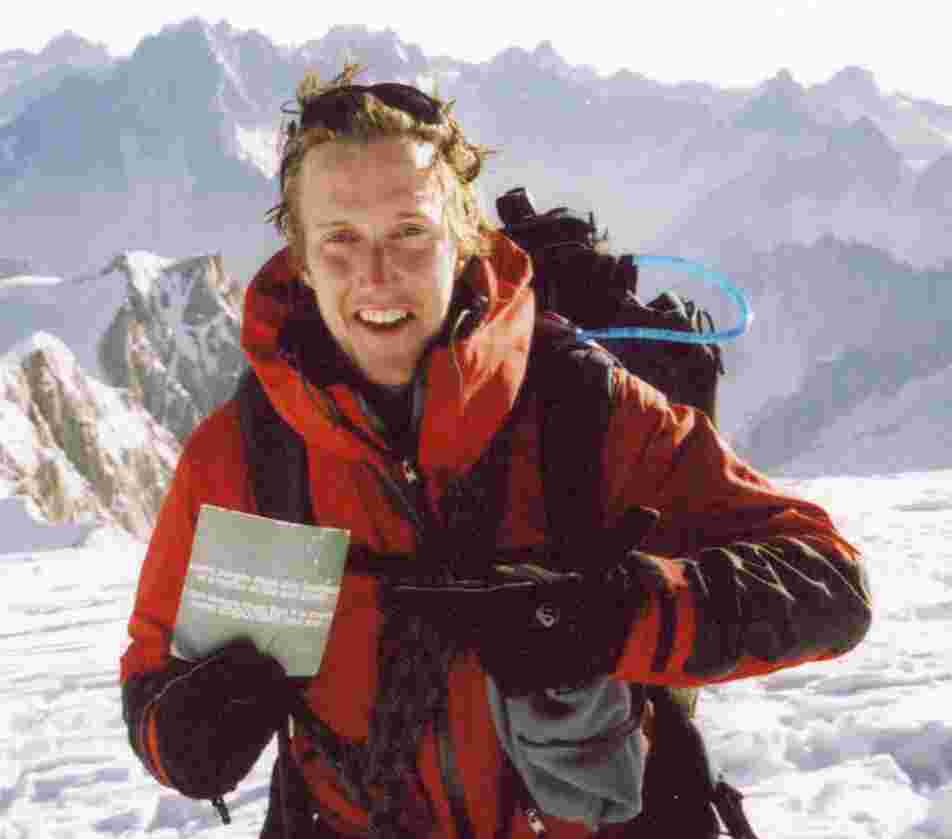Paul John Gascoigne.
Professional footballer and entertainer.
Born Dunston, 27 May 1967.
Died Newcastle, 7 Feb 2008.
He leaves behind his ex-wife Sheryl Gascoigne, their son Regan and two step-children.
An entertainer and rogue of prodigious footballing talent, Gascoigne, [who died of [ ] this week], won 57 caps for England and enjoyed a 17-year playing career with Newcastle United, Spurs, Lazio, Rangers, Middlesbrough and Everton.
The twilight of his playing days showed his hunger for the game as he chased appearances in less well-known territory, turning out for Burnley, Boston United, Chinese side Gansu Tianma, and American outfit DC United.
It would be harsh to chronicle the life of one of England’s greatest footballers by means of two bad tackles, but a tendency for over exuberance proved the flaw of this particular genius.
The yellow card for Gascoigne’s late tackle on Thomas Berthold in the 1990 World Cup semi-final meant the 23-year-old Geordie, who had been instrumental in England’s progress and was picked for the tournament’s All-Star team, would miss the final.
In the end it was academic, England lost on penalties, but the image of Gascoigne sobbing openly into his England shirt became iconic. He was voted the 1990 BBC Sports Personality of the Year.
The second tackle came a year later, minutes into Tottenham’s 1991 FA Cup Final against Nottingham Forest. Gascoigne steamed into a nasty challenge on Gary Charles and ruptured a cruciate ligament in the process.
The boy from Dunston, whose family initially lived in a single upstairs room in a council house, had wanted to show the world his talent in his last game for Spurs having signed a club record £8.5 million deal to join Italian-side Lazio.
Such rashness cannot overcome the tales of Gascoigne’s talent though. Six goals from his boot steered Tottenham to the 1991 final, including a 25-yard freekick against their north London rivals, Arsenal.
And it was his precocious ability, first recognised while playing for Gateshead Boys, which prompted Tottenham to pay Newcastle a British transfer record of £2.3 million in 1988 after he was crowned the Barclays Young Player of the Year.
Regarded as one of the most gifted players of his generation, he had a knack for scoring when it counted, endearing him to fans wherever he played. His first goal for Lazio was an 89th-minute equaliser in the Rome derby.
Gascoigne also scored in the Old Firm match at Celtic Park shortly after transferring to Rangers for £4.3 million in July 1995 and it was his hat-trick in the pen-ultimate game of the season which won the 1996 League Championship for his new side.
He was subsequently voted both Players’ Player of the Year and Football Writers’ Player of the Year, and won the 1996 Scottish Cup, the 1997 League Cup and the 1997 League Championship with Rangers.
Then there was his flick and volley against Scotland in Euro 1996, hailed as one of the greatest England goals ever.
The later years of Gascoigne’s career were blighted by the wrong sort of headlines as he struggled with drink and domestic problems. He publicly admitted beating his wife and being an alcoholic.
Booze-fuelled pranks with best mate Jimmy "Five Bellies" Gardner kept the paparazzi busy wherever he played.
His Lazio team-mate and Dutch international, Aron Winter, described him as “absolutely mad” after Gascoigne knocked on his door at gone midnight, naked but for a small pair of comedy glasses, and said: “If you need anything, call me.”
A famed joker, Gascoigne once booked a referee when a yellow card was dropped on the floor, called the dreadlocked Dutch legend Ruud Gullit a “long haired yeti”, and was known to opposition fans in Italy as “the drunkard with an earring”.
A football genius, eager to please and eager to play, Paul Gascoigne is a character who, despite his flaws, and probably because of them, will never be forgotten.

No comments:
Post a Comment